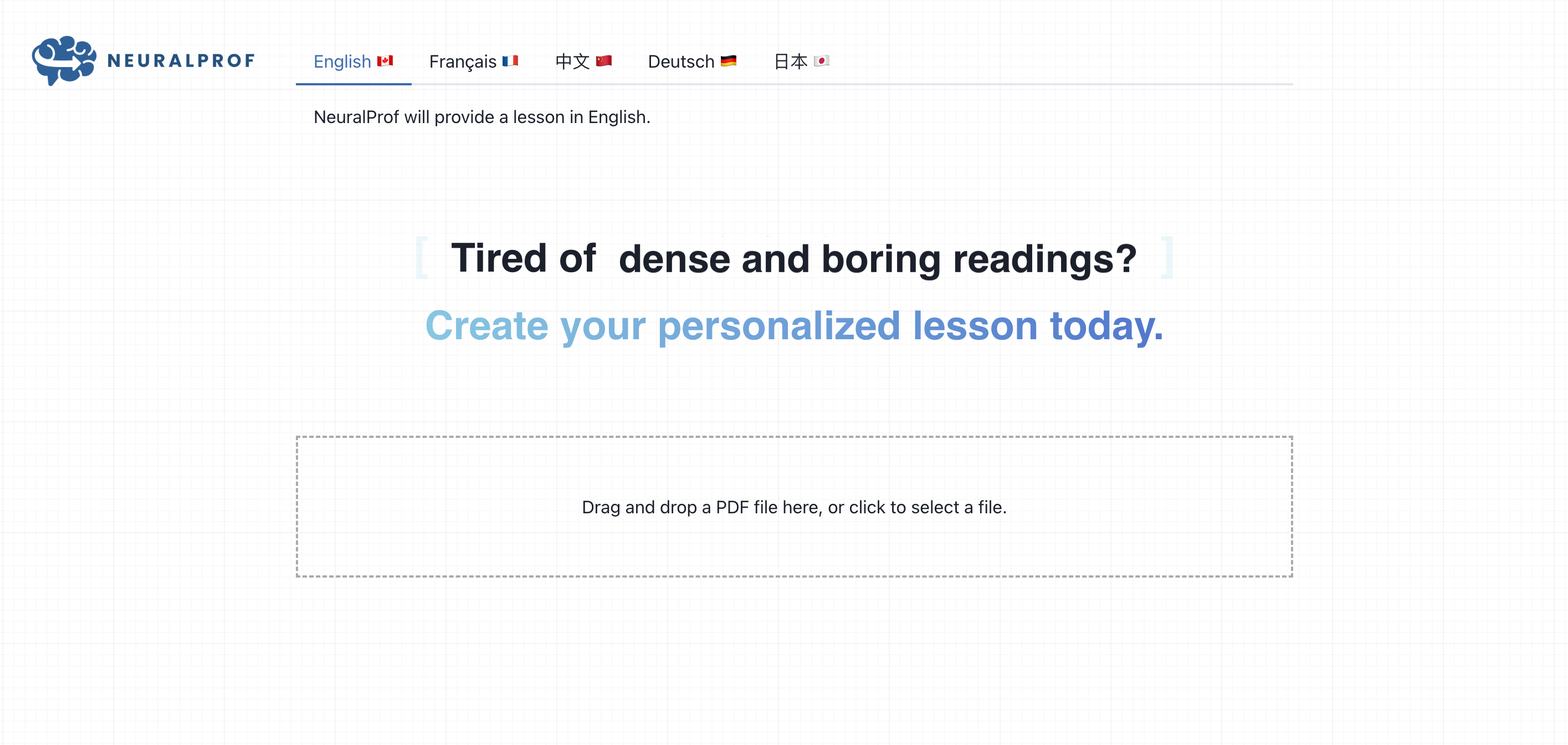


Transform PDFs into Interactive Lessons: Your Study Companion
NeuralProf is an innovative web application developed during the StormHacks 2023 hackathon. Its primary purpose is to revolutionize the learning experience for university students by leveraging artificial intelligence and natural language processing. With NeuralProf, students can easily upload PDF documents related to their courses. The app extracts the text content from the PDFs and generates a comprehensive and personalized step-by-step lesson plan based on the extracted information. The lesson plan breaks down complex topics into manageable sections, allowing students to follow along more effectively. One of the standout features of NeuralProf is its interactive question and answer system. At each step of the lesson plan, students can ask questions based on the PDF data, and the app utilizes the OpenAI Python API to provide accurate and relevant answers. This feature promotes active learning and helps students clarify any doubts they may have while studying. Furthermore, NeuralProf offers a built-in quiz functionality. Students can test their understanding of the material covered in each step by taking quizzes generated from the extracted content. This gamified approach fosters engagement and reinforces learning outcomes.